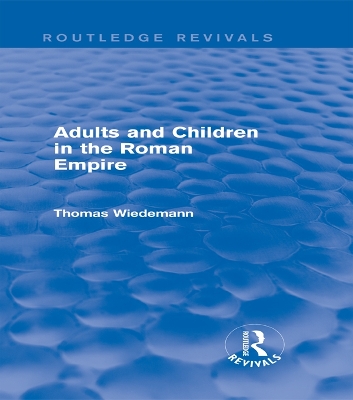Routledge Revivals
2 total works
Adults and Children in the Roman Empire (Routledge Revivals)
by Thomas Wiedemann
There is little evidence to enable us to reconstruct what it felt like to be a child in the Roman world. We do, however, have ample evidence about the feelings and expectations that adults had for children over the centuries between the end of the Roman republic and late antiquity.
Thomas Wiedemann draws on this evidence to describe a range of attitudes towards children in the classical period, identifying three areas where greater individuality was assigned to children: through political office-holding; through education; and, for Christians, through membership of the Church in baptism. These developments in both pagan and Christian practices reflect wider social changes in the Roman world during the first four centuries of the Christian era.
Of obvious value to classicists, Adults and Children in the Roman Empire, first published in 1989, is also indispensable for anthropologists, and well as those interested in ecclesiastical and social history.
Interest in ancient slavery has grown steadily in recent decades: partly in response to the Marxist interpretation of slavery as one of the characteristic types of economic system, partly as a comparison and contrast to New World slavery and the preconceptions associated with it.
Greek and Roman Slavery, first published in 1981, provides readers interested in ancient slavery with a selection of major texts from Greek and Latin literature to which modern scholarship constantly refers, translated into accessible contemporary English, as well as some epigraphical and other non-literary material. Intended as a supplement and not a substitute for a systematic treatment of the subject, each extract is preceded by an introduction, indicating its significance and offering modest historical interpretation.
There is no better collection of relevant ancient sources, in a form suitable for students or specialists who are unfamiliar with the classical languages, than Wiedemann's Greek and Roman Slavery.

